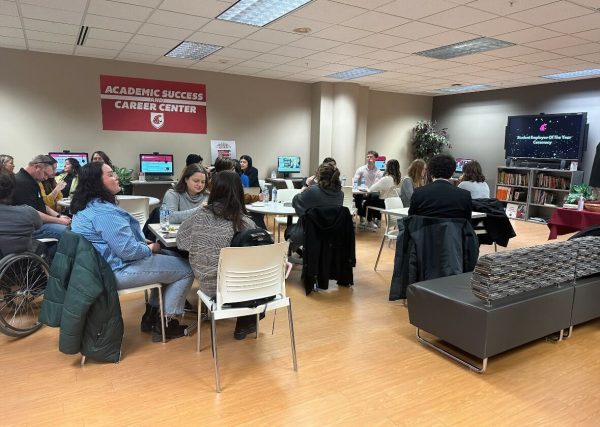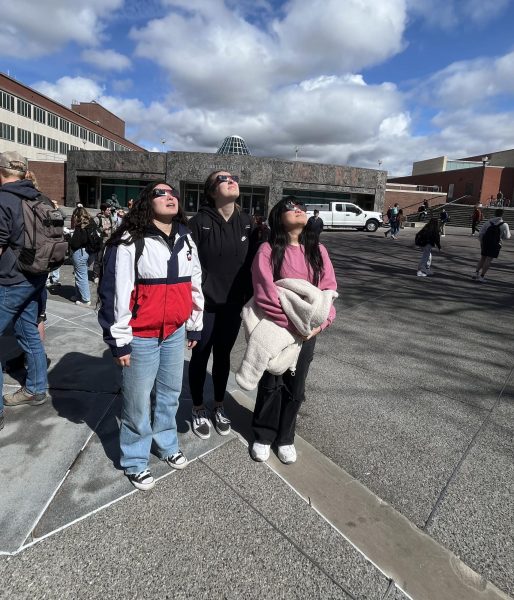Seeing through the media
October 15, 2014
Donna Potts, a rape victim, well-established writer, and English professor gave a talk yesterday regarding sexual assault and rape in academia.
Part of the Humanities Fellows program, Potts was the first in a three lecture series to take place this year.
“I wanted this to be the start of a more public face of our Humanities Fellows program,” said Dean of College of Arts and Sciences Daryll DeWald. “And Donna has hit the ground running here at WSU.”
The new program will allow professors with distinguished research to present their works to the university.
Potts’ research consists of literature and sexual assault, and in her lecture she used Greek and Roman mythology and intertwined other texts to discuss the stigma of rape against women.
“One of the first productive ways I had thinking about sexual violence came from a memory from the story of Philomela,” said Potts.
Philomela, an Athenian princess, is raped by her brother-in-law Tereus. He then cuts out her tongue when she threatens to name him for his crime. By cutting out her tongue, she is unable to convict Tereus.
“I was reluctant to acknowledge my rape, for fear it would signal to the world that my own professors didn’t regard me as having a mind worth cultivating,” said Potts.
Potts was impressed with the services and programs offered for students on campus, saying they were much better than what she had expected.
“When I reported my circumstance I was told, ‘yeah I bet a lot of men find you attractive,’ and handed a bottle of antidepressants,” Potts said.
Potts addressed issues of campus rape and how certain literature can discourage women on reporting what occurs to them.
“Rather than being swept under the rug this issue should be handled more effectively,” said Kirk McCauley, associate professor in English and director of undergraduate studies.
Potts recalled the messages of Philomela that she learned in high school, in 2005 when she noticed a poster advertising a reading by one of her assailants.
“A friend suggested, ‘why don’t you write a poem about what he did and read it during open mic’,” said Potts.
Potts’ poem discusses a poet who lures a student into his room and is afraid to discuss what really happened.
“That evening I had the pleasure of reading my poem while looking straight at the perpetrator who sat in the front row,” Potts said. “My friend sat right next to him, watching the color drain from his face.”
In the story of Philomela, she creates a tapestry that depicts what happened to her and it is eventually used to incriminate Tereaus.
In the lecture it was discussed how art is a positive means for victims to break their silence; for Potts, it happened to be poetry.





















